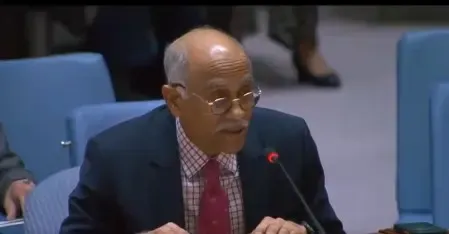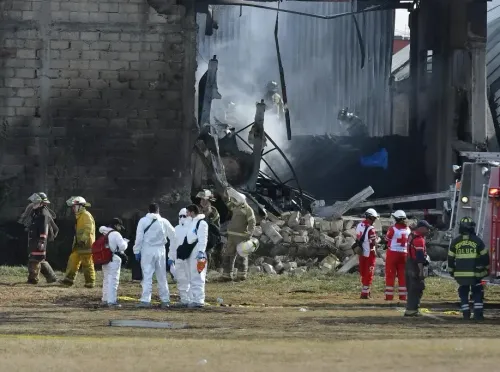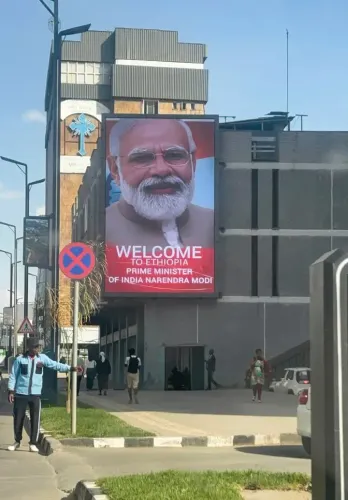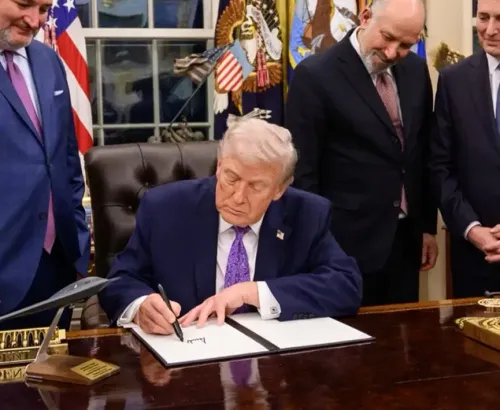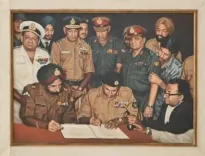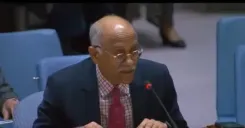Australian Prime Minister Announces General Election for May 3
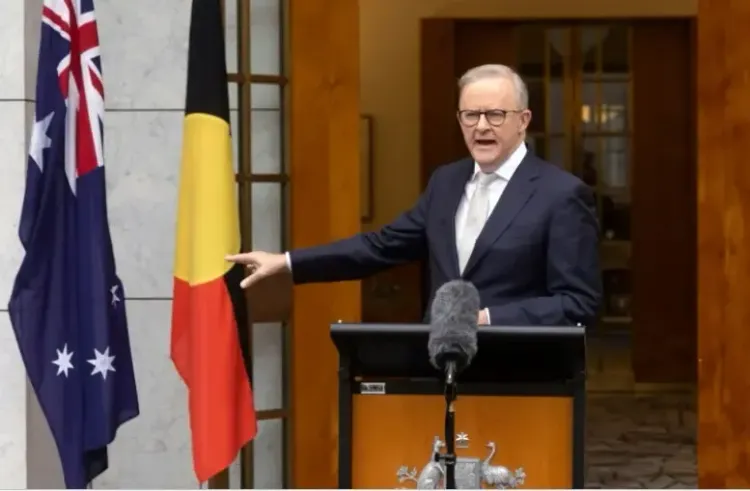
Synopsis
Key Takeaways
- Australian PM Anthony Albanese calls for a general election on May 3.
- The election campaign will last five weeks.
- Albanese's Labor Party faces opposition from Peter Dutton's Coalition.
- Economic issues and housing costs are pivotal in the upcoming election.
- Polling suggests a tight race with potential independent influence.
Canberra, March 28 (NationPress) The Prime Minister of Australia, Anthony Albanese, met with Governor-General Sam Mostyn on Friday to officially dissolve the federal parliament and announce a general election scheduled for May 3.
During his morning visit, Albanese requested the Governor-General, who acts as the representative of the British monarch in Australia, to commence the formal election process to elect members of the 48th Parliament of Australia.
This triggers a five-week campaign where Albanese and his ruling Labor Party will face off against Opposition Leader Peter Dutton and his Coalition of the Liberal and National parties, as reported by Xinhua.
At a press conference following his meeting with Mostyn, Albanese stated that voters would have the opportunity to “choose the way forward” during the election.
“We cannot dictate the challenges that lie ahead, but we can influence how we respond,” he remarked.
“Your vote has never been more crucial,” he emphasized.
According to opinion polls, this election is anticipated to be closely contested.
The Albanese-led government unveiled its annual budget earlier this week, appealing to voters with unexpected tax reductions and a variety of incentives.
Conservative leader Peter Dutton, aged 54, has criticized Albanese, accusing him of exhibiting “weak” leadership and contributing to inflation through government spending.
Dutton's flagship initiative is a $200 billion plan to build seven industrial-grade nuclear reactors, which could impede the advancement of renewable energy.
Polling indicates that concerns regarding the economy and the escalating cost of housing will take center stage in the election.
Although inflation has dropped under Albanese's leadership—from 7.8 percent in 2022 to 2.4 percent in December—many families continue to grapple with soaring prices for food, fuel, and electricity.
Major cities like Sydney and Melbourne are now listed among the 10 least-affordable housing markets globally, according to the annual Demographia affordability index.
Australian politics has traditionally been influenced by Albanese's left-leaning Labor Party and Dutton's right-leaning Liberals.
However, increasing dissatisfaction among voters has empowered independents advocating for enhanced transparency and progress on climate issues.
Surveys suggest that 10 or more unaligned crossbenchers could hold the balance of power, making a rare minority government a tangible possibility.
While the two major parties largely concur on defense and national security, committing Australia to a closer military partnership with the US, they have previously disagreed over China.
Albanese has increased engagement with crucial trading partner China, making a groundbreaking trip to Beijing in 2023, marking the first visit by an Australian leader in seven years.
The former Conservative government was highly critical of China, resulting in a trade war that cost Australia billions of dollars until it subsided late last year.


